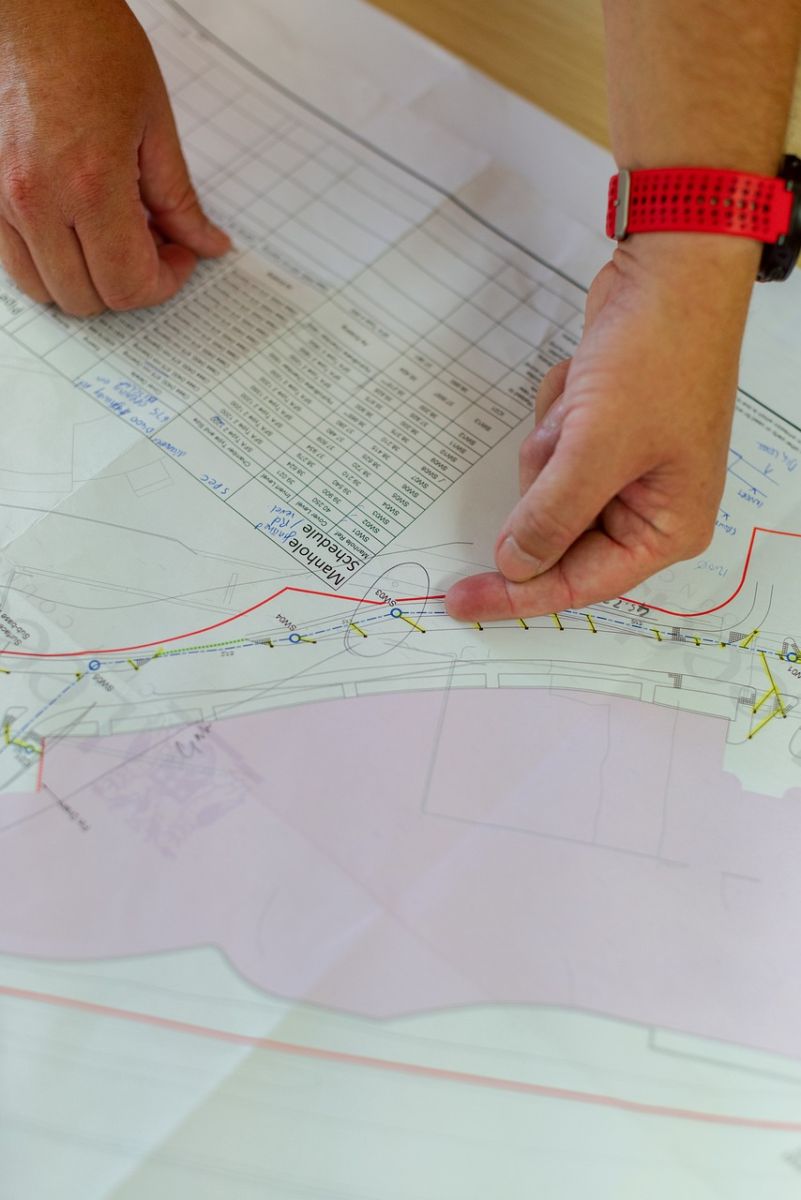Drafting vs. Engineering: Choosing the right partner for commercial projects
Quality solar engineering services do more than get you through permitting, they help prevent redesigns, failed inspections, and costly delays. The right solar permit design ensures your project meets code, clears structural review, and gains utility approval without setbacks.
With the 30 percent residential solar tax credit ending in 2025, and the commercial ITC phasing down soon after, timing is critical. Missing deadlines due to permitting or engineering delays can mean losing out on thousands in incentives.
Early engineering decisions in commercial solar design shape project cost, performance, and timeline. For large systems or complex sites, working with a full-service solar engineering firm helps keep things on track and avoid unexpected roadblocks. Let’s look at what each option brings to the table.
 A solar permit drafting firm
A solar permit drafting firm
Solar drafting firms offer basic solar permit design services to help installers get approval from the Authority Having Jurisdiction (AHJ). These usually include layout drawings, equipment specs, and simplified electrical line diagrams — sufficient for small commercial or residential projects. They’re ideal for standard rooftop installs, repeatable portfolios, and areas with simple permitting. Drafters are often fast and affordable, with strong local permitting experience.
However, solar drafting services typically lack structural engineering, PE-stamped drawings, or detailed electrical design. That can cause issues in larger or more complex solar project engineering scenarios, potentially leading to failed inspections or last-minute revisions.
A full-service solar engineering firm
A full-service solar engineering firm delivers comprehensive solar engineering services that go beyond basic plan sets. These firms provide multi-disciplinary support, including PE-stamped drawings, structural engineering for solar systems, advanced electrical design, and in-depth code compliance.
For commercial solar design, this level of expertise is often essential. A solar engineering firm can assess structural loads, coordinate utility requirements, and conduct constructability reviews that catch potential issues early. This proactive approach helps avoid costly redesigns, accelerates approvals, and supports long-term system performance. Whether it’s a ground mount with battery energy storage system (BESS) integration or a complex commercial rooftop, experienced firms deliver the solar project engineering needed to meet code, stay on budget, and reduce risk.
Risks of relying on drafting services for commercial solar design
For commercial solar design, especially for schools, government buildings, multi-meter projects, or complex array layouts, relying solely on drafting services can introduce serious risks. Although a drafter may provide basic solar permit design, they often lack the full-scope expertise and technical oversight that a licensed solar engineering firm brings to the table.
Without structural engineering for solar and coordinated design across disciplines, projects can run into serious issues like misalignment between structural and electrical plans, costly redesigns, failed inspections, and delayed approvals. These setbacks can throw off project schedules and budgets. Drafting-only approaches also miss opportunities to reduce balance of system (BOS) costs or improve performance through smarter layout or component selection. For solar project engineering at scale, investing in qualified solar engineering services often pays for itself through smoother permitting and more reliable outcomes.
When solar drafting services might be enough
Not every solar project needs a full engineering team behind it. For straightforward installations like simple rooftop systems, cookie-cutter portfolios, or projects in low-risk jurisdictions, solar drafting services can be a smart and efficient choice. Drafting firms typically specialize in creating permit-ready plan sets that meet local code requirements. Many have solid experience working with specific AHJs, so they know exactly what’s needed to move things forward quickly and affordably. In areas where permitting is relatively relaxed and structural complexity is low, drafting alone often gets the job done.
Keep in mind, solar drafting services operate within a limited scope. They usually don’t provide stamped engineering drawings or dive into structural integrity, advanced electrical coordination, or system optimization. That’s fine for simple projects, but it’s a risk if you’re working on something larger or more complex.
.jpeg)
When to work with a full-service solar engineering partner
Some solar projects are simply too complex or high stakes for drafting alone. When you're working on systems over 250 kW or dealing with carports, BESS, or tricky structural conditions, it’s time to bring in a full-service solar engineering firm. These types of commercial solar projects benefit from coordinated solar engineering services that go beyond the basics. Structural engineering for solar, detailed electrical design, and utility coordination are critical to keeping larger builds on schedule and within budget.
Sites in high wind or snow load zones especially demand licensed engineering oversight to meet permitting requirements and avoid last-minute redesigns. With federal tax credits like the commercial ITC phasing out, delays can get expensive fast. Think of solar project engineering as a smart, proactive investment in the success of your project—not just a line item on the budget. A qualified solar engineering partner helps reduce risk, prevent surprises, and keep your installation moving forward.
Choosing the right solar engineering services
Not all engineering partners are alike. Whether you need full commercial solar design or a mid-size solar permit design, it’s worth doing some research. Look for a licensed firm with experience in commercial-scale solar engineering services and a solid AHJ approval track record. Ask about their support beyond drawings, like layout optimization, structural design, and constructability reviews. When you choose a solar engineering firm that knows how to deliver at scale, you're setting your project up for smoother approvals, faster builds, and better long-term performance.
Engineering decisions shape the entire solar project
Every solar project rests on the strength of its engineering. Structural engineering for solar impacts system durability, while integrated services enable faster approvals and fewer surprises. Choosing the right solar engineering firm at the start of your commercial project helps you avoid missteps that can delay timelines or drain your budget. From solar permit design to multi-disciplinary coordination, the right partner helps you build smarter and more efficiently. In today’s market, strong solar project engineering is a strategic advantage.
 Sarah Lozanova is the Content Marketing Manager at GreenLancer, a solar engineering and permit design firm. GreenLancer delivers code-compliant solar plan sets, engineering reviews, and PE stamps for residential, commercial, and utility-scale installations.
Sarah Lozanova is the Content Marketing Manager at GreenLancer, a solar engineering and permit design firm. GreenLancer delivers code-compliant solar plan sets, engineering reviews, and PE stamps for residential, commercial, and utility-scale installations.
GreenLancer | www.greenlancer.com
Author: Sarah Lozanova
Volume: 2025 September/October









.png?r=8194)


